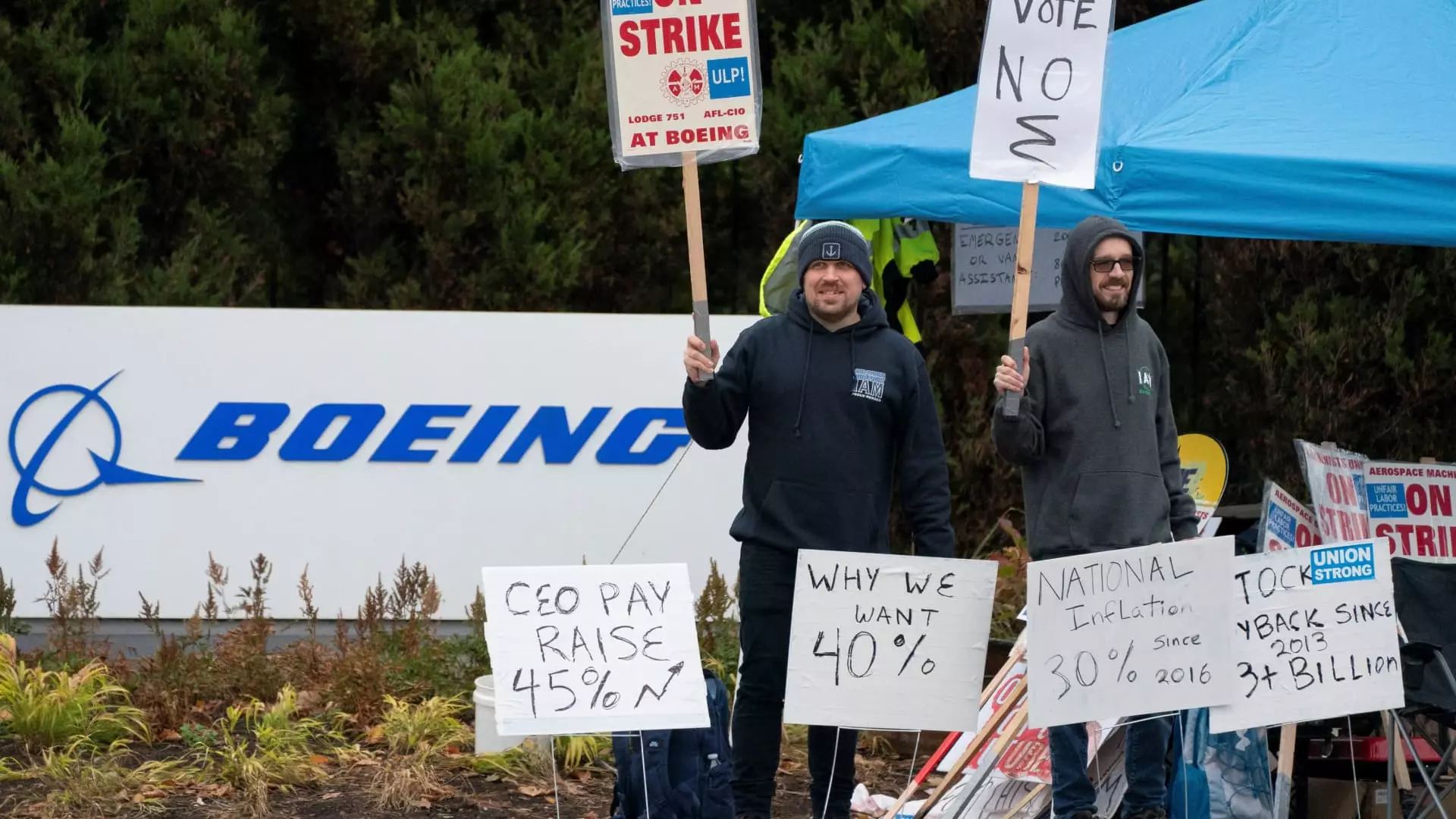The recent negotiations between Boeing and the International Association of Machinists and Aerospace Workers (IAMAW) represent a critical juncture in labor relations within one of the world’s largest aerospace companies. After nearly seven weeks of a debilitating strike that began on September 13, the machinists of Boeing have been presented with a new contract offer that could not only secure better wages for workers but also restore stability within the company. The union’s encouragement for its members to consider this offer underscores a cautious pragmatism rooted in the realization that prolonged strikes could lead to diminished terms in future negotiations.
This situation is particularly crucial given the extensive nature of Boeing’s labor force, which consists of over 32,000 machinists primarily located in Seattle. The rejection of previous proposals illustrates worker discontent, particularly in light of rising living costs in the area, intensified by competing demands from tech giants that have significantly driven up salaries across industries. It reflects a broader trend of labor movements that are pushing back against corporate inertia, seeking not just fair wages but also respecting the value of their labor, especially in a region where financial pressures are relentless.
The new contract proposal introduces attractive terms, including a general wage increase of 38% over four years, which exceeds the previous offer of 35%. When compounded, this results in an almost 44% increase in overall pay—a significant advancement for the workers. In addition, the offer includes a choice between a $12,000 one-time ratification bonus or a mix of a $7,000 bonus with $5,000 allocated to a 401(k) plan, highlighting the union’s attempt to meet various employee needs.
Such compensation packages are not simply a matter of appeasement but a strategic response to the increasing cost of living that workers face in the Seattle metropolitan area. With major companies like Amazon and Microsoft competing for talent, the pressure for Boeing to offer competitive wages becomes increasingly daunting. This newfound economic urgency has sparked a mindset among union leaders that should their members choose to prolong the strike, they risk jeopardizing the agreements they have fought hard to secure.
The ramifications of the strike on Boeing’s operational status cannot be understated. In recent times, the aerospace giant has grappled with production issues and has suffered financial setbacks—including a $6 billion loss in the latest financial quarter. The consequences of a strike that halts production at a time when the company is already reeling from past crises, such as safety inspections and production flaws, underscore the fragility of Boeing’s current position in the industry.
As they attempt to maneuver toward stability, the company’s management is aware that each day of the strike exacerbates financial losses and dilutes trust from stakeholders. The CEO, in addressing the circumstances, expressed a strong commitment to finding a solution that satisfies both corporate health and employee needs, reflecting an acknowledgment of the shifting dynamics in labor relations. The coming days, therefore, are not just about a contract vote; they symbolize a fortification of employee voices and a critical examination of corporate governance.
The ongoing situation at Boeing serves as a significant case study for labor relations in the contemporary workforce. The successful mobilization of the machinists raises questions about how labor unions are redefining their strategies in an increasingly volatile economic environment. If the union ratifies the new contract, it may embolden similar movements in other industries where workers feel undercompensated and overburdened.
Furthermore, the ramifications of this strike stretch beyond Boeing’s workforce; they resonate throughout national labor patterns, setting precedents for future negotiations. As companies like Boeing face mounting pressure from employees demanding fair compensation, this could herald a new era of assertive labor movements equipped with convictions to protect their interests effectively.
The unfolding events at Boeing encapsulate the ongoing struggle for labor rights in a rapidly changing economic landscape and hint at a broader renaissance of labor activism across the United States. By voting on the new contract, the machinists are not only determining their immediate future but are also influencing the dynamics of labor relations for all workers striving for dignity and fair compensation in the modern workforce.


Leave a Reply